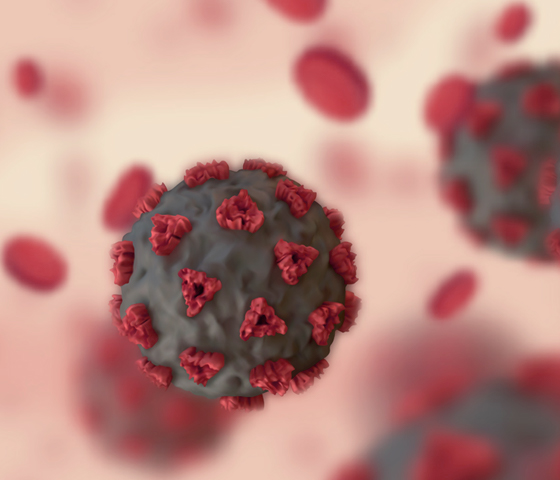Host Genetics & Immune Response Profiling

Investigating Host Genetics
Uncovering the underlying genetic factors associated with host susceptibility and profiling individual immune system responses may help unravel the complexities of infectious diseases such as COVID-19 and reveal future therapeutic targets. It is crucial to identify genetic variants linked to disease severity, and study immune response differences such as inflammatory cytokine, T cell, and NK cell gene expression signatures. Next-generation sequencing (NGS) and microarray technologies can help researchers interrogate host genetic variation and characterize the molecular mechanisms that drive immune responses.
The key benefits of using Illumina NGS and array technologies to study host risk and immune response include:
- Scalability and flexibility to screen diverse sample sets, with high-throughput and low-throughput options
- Solutions that allow a multiomic approach to analyze host genetic variation and profile immune transcript and epigenetic signatures
- Data analysis and interpretation solutions to match your project scale
Methods for Host Genetics & Immune Response Profiling Studies
| Application | Goal | Recommended Methods |
|---|---|---|
| Host genetics research |
|
|
| Host immune response profiling |
|
|
| Microbiome & host response |
|
SARS-CoV-2 Identification
The COVIDSeq Assay (96 samples) is a low- to mid-throughput NGS assay designed to help clinical research labs identify both known and novel strains of SARS-CoV-2.Featured Workflows
Webinar: COVID-19 Host Genetics Initiative
Mark Daly, PhD discusses a global effort to identify host genetics contributions to COVID-19 disease susceptibility and severity.
View WebinarUsing Genomics to Study COVID-19 Host Genetic Variability
Dr. Lee Murphy’s core lab at the University of Edinburgh applies a genomic approach to study host genetic variability in disease progression and outcome in SARS-CoV-2 hospitalized patients. The team and collaborators perform genotyping and WGS on DNA samples, as well as mRNA sequencing on the NextSeq 2000 System.
View Video
How Methylome Relates to Clinical Outcome
Methylation arrays add another dimension to the study of COVID-19 and other infectious diseases.Featured Articles
Illumina Sequences Genomes for UK-Wide COVID-19 Study
Data from severely ill patients may help us understand the genetics of susceptibility. Sequencing the entire human genome may identify genetic variations that help explain why the COVID-19 pandemic is life-threatening for some people but not others.
Read ArticleEnvironment for COVID-19 Host Genetics & Immune Response Studies
BaseSpace Correlation Engine enables hypothesis validation around important cell signaling and immune system pathways, biomarkers, and potential drug candidate leads, to help address the COVID-19 crisis.
Read ArticleRelated Publications
DNA methylation changes associated with COVID-19
Read Case StudyImmunology of COVID-19: Current State of the Science
Read ReviewPresence of Genetic Variants Among Young Men with Severe COVID-19
Read PaperCOVID-19 severity correlates with airway epithelium–immune cell interactions identified by single-cell analysis
Read PaperGet help finding the right solutions for your host genetics and immune response studies.
Related Solutions
Microbiome Analysis
The study of microbial communities found in and on the human body allows researchers to understand the role of microbes in health and disease.
Shotgun Metagenomics
A DNA sequencing method that enables comprehensive sampling of all genes in all organisms in a given complex microbial sample.
Complex Disease Research
Complex diseases result from a combination of genetic and environmental factors. Array and sequencing technologies can help reveal the underpinnings of these diseases.
Cell & Molecular Biology
Expand cell and molecular biology research beyond conventional methods with next-generation sequencing.
Single-Cell RNA-Seq
With single-cell RNA-Seq, researchers can study cellular differences that are often masked by bulk sampling.